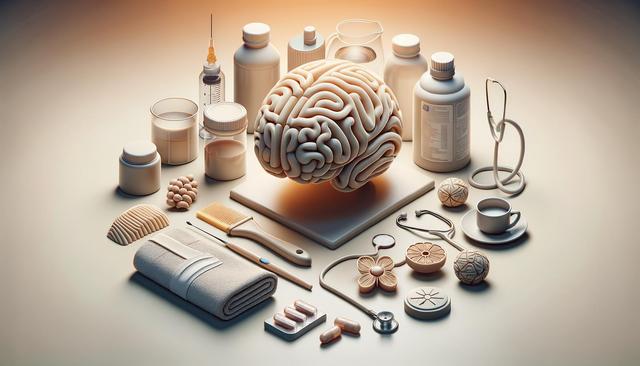What Is Alzheimer’s Disease and Why Treatment Matters
Alzheimer’s disease is a progressive neurological disorder that primarily affects memory, thinking, and behavior. It is the most common cause of dementia, especially among older adults. As the disease advances, it can severely impact a person’s ability to perform daily activities independently. While there is currently no cure for Alzheimer’s, treatment plays a critical role in managing symptoms and slowing the disease’s progression. Early diagnosis and intervention can significantly improve a person’s quality of life and allow more time for planning and support.
Treatment for Alzheimer’s typically involves a combination of medications, lifestyle adjustments, and supportive therapies. The goal is not only to address cognitive decline but also to manage behavioral symptoms such as confusion, agitation, and depression. It’s essential to understand that treatment effectiveness can vary from person to person, and regular monitoring by healthcare professionals is crucial to adjust care plans as needed.
Medications Available for Alzheimer’s Management
There are two main categories of drugs approved for Alzheimer’s treatment: cholinesterase inhibitors and NMDA receptor antagonists. These medications help regulate neurotransmitters in the brain, which may temporarily improve or stabilize symptoms in some individuals. Commonly prescribed cholinesterase inhibitors include:
- Donepezil
- Rivastigmine
- Galantamine
These are typically used in the early to moderate stages of the disease and can support memory and cognitive function. NMDA receptor antagonists, such as memantine, are often prescribed in the later stages to help with learning and memory. In some cases, a combination of both types of medication may be used to enhance their effects.
In recent years, there has been growing research into new drug therapies targeting the biological mechanisms of Alzheimer’s, such as the buildup of amyloid plaques in the brain. While some of these treatments are still under investigation or in early use, they offer a promising step toward more effective management options in the future.
Non-Pharmacological Therapies and Lifestyle Changes
In addition to medications, non-pharmacological interventions play a vital role in Alzheimer’s treatment. These approaches can help preserve cognitive function and improve emotional well-being. Examples include:
- Cognitive stimulation therapy (CST)
- Music and art therapy
- Exercise and physical activity
- Social engagement and mental exercises
Engaging in regular physical activity has been shown to support brain health and reduce the risk of further cognitive decline. Similarly, maintaining a balanced diet rich in fruits, vegetables, whole grains, and healthy fats can support overall wellness. The Mediterranean diet, in particular, has been associated with better cognitive function in older adults.
Creating a structured and supportive environment can significantly help individuals with Alzheimer’s feel more secure and less confused. Simple modifications such as labeling drawers, using clocks with large numbers, and maintaining consistent daily routines can reduce anxiety and improve independence.
Support for Caregivers and Families
Caring for someone with Alzheimer’s can be both rewarding and challenging. As the disease progresses, caregivers often face emotional, physical, and financial strain. Providing adequate support and resources is essential for their well-being and for the sustained care of the patient. Family members should consider:
- Joining support groups for caregivers
- Accessing respite care services
- Working with healthcare professionals for care planning
- Utilizing community and home-care programs
Education is another key component of caregiver support. Understanding the stages of Alzheimer’s and what to expect can help families prepare and adapt to changing circumstances. Additionally, legal and financial planning should be addressed early, including power of attorney and advanced directives, to ensure that the individual’s wishes are respected.
Caregivers should also prioritize their own health. Managing stress, getting enough rest, and seeking help when needed are essential to avoid burnout. The journey of caregiving is easier when shared with professionals, friends, and support networks.
Advancements and Ongoing Research
The scientific community continues to make strides in understanding Alzheimer’s and developing new treatment approaches. Research is focused on targeting the underlying causes of the disease, such as abnormal protein buildup and inflammation in the brain. Clinical trials are exploring:
- Immunotherapies that target beta-amyloid and tau proteins
- Anti-inflammatory drugs aimed at reducing brain inflammation
- Gene therapy approaches to modify risk factors
- Early detection methods using biomarkers and imaging
These advancements may eventually lead to more effective treatments and possibly preventive options. Participation in clinical trials is an important way for patients and families to contribute to this progress and potentially access emerging therapies.
Public awareness campaigns and advocacy efforts also help drive funding and research initiatives. Organizations around the world are working together to improve diagnosis, care, and education about Alzheimer’s. While challenges remain, the momentum in research offers hope for better outcomes in the future.
Conclusion: Navigating Alzheimer’s with Knowledge and Support
Alzheimer’s disease brings significant challenges, but with the right combination of medical treatment, supportive therapies, and caregiver resources, individuals can maintain a meaningful quality of life. Understanding the available options and staying informed about new developments empowers families to make well-rounded decisions at every stage of the disease. As research continues to evolve, so does the potential for more effective treatments and improved care strategies. For those affected by Alzheimer’s, hope lies in compassionate support, proactive planning, and ongoing advancements in science and medicine.




Leave a Reply